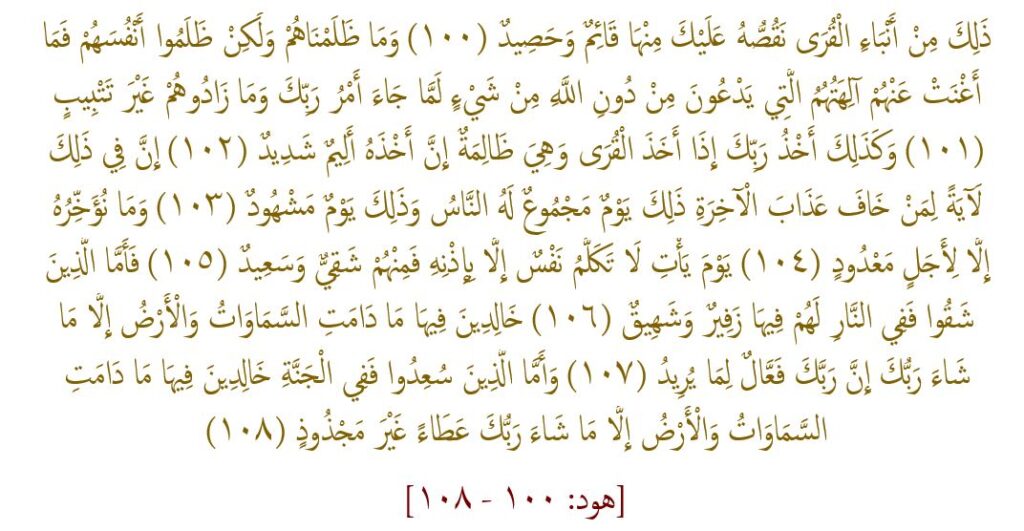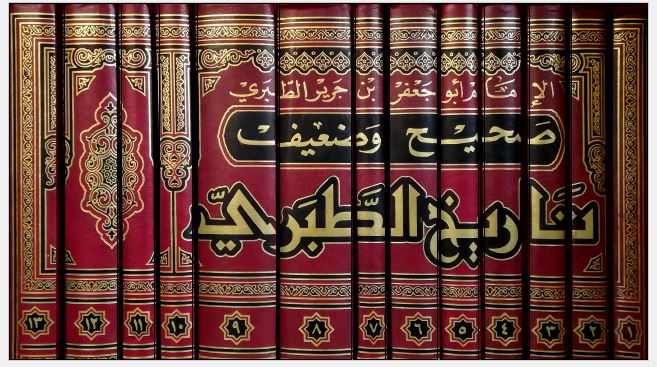
Seen from the Qurʾānic lens, history is the record of human response to Divine invitation to live a virtuous life. When individuals and nations follow Divine commands, they prosper; when they disobey, they parish. There are Divine Laws operating in the affairs of the world.
These are among the chronicles of towns We have recounted unto you. Among them are some that remain and some that have been mown down. We wronged them not, but they wronged themselves. And their gods whom they called upon apart from Allah did not avail them in the least when the Command of thy Lord came, and they increased them in naught but ruin. Such is the seizing of thy Lord when He seizes the towns while they are doing wrong. Surely His seizing is painful, severe. Truly in that is a sign for those who fear the punishment of the Hereafter. That is a Day on which humankind shall be gathered together, and that is a Day that shall be witnessed. And We delay it not, save for a limited term. On the Day it comes, no soul shall speak save by His Leave. Among them shall be the wretched and the felicitous. As for those who are wretched, they shall be in the Fire, wherein there shall be for them groaning and wailing, abiding therein for so long as the heavens and the earth endure, save as thy Lord wills. Surely thy Lord does whatsoever He wills. And as for those who are felicitous, they shall be in the Garden, abiding therein for so long as the heavens and the earth endure, save as thy Lord wills—a gift unfailing. (Q 11:100-108)



Early on
History (from historía, Ancient Greek: ἱστορία, romanized: historíā, lit. “inquiry, knowledge from inquiry, or judge”, ʿilm al-taʾrīkh, عِلْم التاريخِ, is the narrative of real events. From the Qurʾānic perspective, real history is the account of human response to Divine invitation to believe in Him and follow what He has commanded to do and avoid what He has prohibited. Cosmic history is the chronicle of creation ex nihilo of all that exists.
Current
The prevalent contemporary view of human history is evolutionary; it takes the past as an inferior state of human development and builds on this assumption a whole edifice which presents the rise of civilizations in serial time, leading to the most advanced contemporary civilization which is based on a human-centiric worldview, giving rise to the “Kingdom of Man” on Earth. This replacement of the “Kingdom of God” with a self-procured Kingdom of Man impacts the way we see the present, past and future. History is one of the most powerful tools Muslim educators have to reconnect learning with faith.
Read more….
